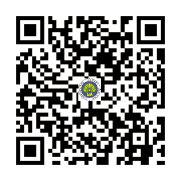Analisis kebutuhan pengeksplisitan hakikat sains (NOS) dalam bahan ajar pada topik lapisan bumi
DOI:
https://doi.org/10.17977/um067v1i2p137-141Keywords:
teaching material, bahan ajar, science literacy, literasi sains, the Nature Of Science (NOS), hakikat sains (NOS)Abstract
Science learning aims to realize students have the science literacy. One characteristic for someone who is science literate is having an understanding of NOS. NOS can be explicit in teaching material. based on various studies and observation results indicate that NOS exploration in teaching materials is still low so that it affects students' understanding of NOS. This research uses descriptive research method with data collection is done through literature study so that the result of need analysis explicit the nature of science (NOS) in teaching material on topics of layer of earth.
Pembelajaran IPA bertujuan mewujudkan siswa berliterasi sains. Salah satu karakteristik bagi seseorang yang berliterasi sains yaitu memiliki pemahaman tentang NOS. NOS dapat dieksplisitkan dalam bahan ajar. berdasarkan berbagai penelitian dan hasil observasi menunjukkan bahwa pengeksplisitan NOS dalam bahan ajar masih rendah sehingga mempengaruhi pemahaman siswa mengenai NOS. Penelitian ini menggunakan metode penelitian deskriptif dengan pengumpulan data dilakukan melalui studi literature sehingga dihasilkan analisis kebutuhan pengeksplisitan hakikat sains (NOS) dalam bahan ajar pada topik lapisan bumi
References
Abd-El-Khalick, F. (2013). Teaching with and about nature of science, and science teacher knowledge domains. Science & Education, 22(9), 2087-2107.
Abd-El-Khalick, F., & Lederman, N. G. (2000). Improving science teachers' conceptions of nature of science: A critical review of the literature. International journal of science education, 22(7), 665-701.
Aulia, A. N. (2013). Analisis buku teks biologi smp di kota bandung berdasarkan hakikat sains (Doctoral dissertation, Universitas Pendidikan Indonesia).
Bell, R. L., Lederman, N. G., & Abd‐El‐Khalick, F. (2000). Developing and acting upon one's conception of the nature of science: A follow‐up study. Journal of Research in Science Teaching: The Official Journal of the National Association for Research in Science Teaching, 37(6), 563-581.
Bell, R. L. (2009). Teaching the nature of science: Three critical questions. Best Practices in Science Education, 22, 1-6.
Bell, R. L., Matkins, J. J., & Gansneder, B. M. (2011). Impacts of contextual and explicit instruction on preservice elementary teachers' understandings of the nature of science. Journal of Research in Science Teaching, 48(4), 414-436.
Demirbas, M., & Balci, F. (2012). The impact of the explicit reflective approach in teaching the nature of science upon Turkish students ‘perceptions of science. International Journal of Asian Social Science, 2(8), 1255-1260.
Holbrook, J., & Rannikmae, M. (2009). The meaning of scientific literacy. International Journal of Environmental and Science Education, 4(3), 275-288.
Khishfe, R., & Abd‐El‐Khalick, F. (2002). Influence of explicit and reflective versus implicit inquiry‐oriented instruction on sixth graders' views of nature of science. Journal of Research in Science Teaching: The Official Journal of the National Association for Research in Science Teaching, 39(7), 551-578.
Lederman, N. G. (2006, June). Research on nature of science: reflections on the past, anticipations of the future. In Asia-Pacific Forum on Science Learning and Teaching (Vol. 7, No. 1, pp. 1-11). The Education University of Hong Kong, Department of Science and Environmental Studies.
Lederman, N. G. (2013). Nature of science: Past, present, and future. In Handbook of research on science education (pp. 845-894). Routledge.
Lederman, N.G. & Schwartz, R. (2006). Exploring contextually-based views of NOS and scientific inquiry: What scientists say. National Association for Research in Science Teaching (NARST) Annual Conference. San Francisco, CA: National Association for Research in Science Teaching. (Online)
Lederman, N. G., Lederman, J. S., & Antink, A. (2013). Nature of science and scientific inquiry as contexts for the learning of science and achievement of scientific literacy. International Journal of Education in Mathematics, Science and Technology, 1(3).
Lee, Y. H. (2013). A proposal of inclusive framework of the nature of science (NOS) based on the 4 themes of scientific literacy for K-12 school science. Journal of the Korean Association for Science Education, 33(3), 553-568.
Melville, M. (2011). Explicit teaching of the nature of science: A study of the impact of two variations of explicit instruction on student learning (Doctoral dissertation, Arizona State University).
Norris, S. P., & Phillips, L. M. (2003). How literacy in its fundamental sense is central to scientific literacy. Science education, 87(2), 224-240.
Pisa, O. E. C. D. (2015). Draft science framework. 2014-07-17]
Pendidikan, P. M., & Kebudayaan, R. I. (2016). No. 22 tahun 2016 tentang Standart Proses Pendidikan Dasar dan Menengah. Kementerian Pendidikan dan Kebudayaan Republik Indonesia.
Rahayu, S. (2014). Menuju masyarakat berliterasi sains: Harapan dan tantangan kurikulum 2013. In Seminar Nasional Kimia dan Pembelajarannya (pp. 27-40).
Rusilowati, A. (2014). Analisis buku ajar IPA yang digunakan di Semarang berdasarkan muatan literasi sains.
Sudjana. N & Ibrahim (1989). Penelitian dan Penilaian Pendidikan. Bandung: Sinar Bumi.




1.png)
4.png)









